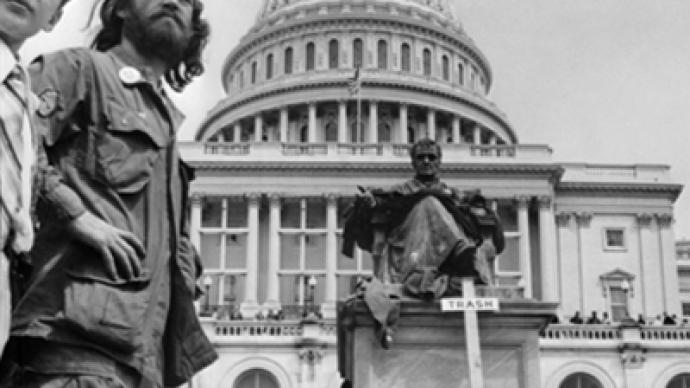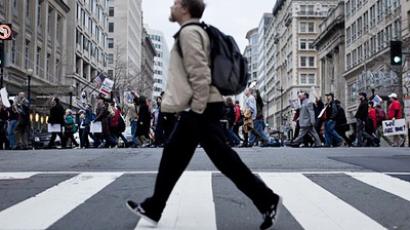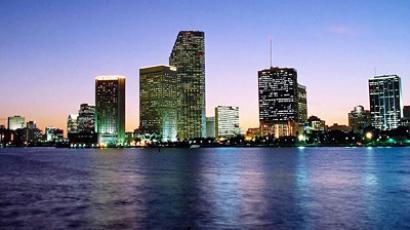Mayday 1971: Most arrests in US history

More than 200,000 protesters and veterans converged on the US capital to demand an end to the war in Vietnam forty years ago on May 3, 1971.
“The idea was to shut the city down because the war wouldn't stop,” said Eddie Becker, a documentarian who filmed the protests. “The only way to stop the war was to stop the government, and that was by putting your bodies on the road and blocking traffic.” Protesters blocked roads with cars, trash cans and their own bodies in order to prevent government employees from getting to work across Washington and at the major bridges and roadways leading into the city. Becker was filming protesters blocking Washington’s Dupont Circle. Police used tear gas and clubs to disperse protesters. Then President Richard Nixon called in the military and paratroopers landed at the National Monument. Retired Lt. Robert Klotz was a police captain working the protests that day. “Later, the 82nd airborne came in with helicopters, and I was assigned as the liaison with the commanding general,” Klotz said. But the protests lasted throughout the day, with more than 2,000 people arrested before 8 a.m. “People were trying everything to end the war and nothing would end it. So this was one of those last ditch efforts and in a sense, it was almost like an Indian tribe. The image of Mayday was Sitting Bull. Sitting Bull was part of a massacre, so for us it was that last stand of dignity, of trying to end the war. And people were willing to put their lives on the line to do it,” Becker said. With insufficient jail space to keep them, police brought protesters to U Line Arena and a practice field used by the Virginia Redskins outside of Robert F. Kennedy Stadium. “We had made plans as to where we were going to keep prisoners, U line Arena was one place, the Redskin practice field, which was down by RFK stadium, was another; there were several places where you could put a large number of people and that's where they were taken when they were arrested,” Klotz said. More than 7,000 protesters were arrested on May 3, 1971 alone—the largest number of arrests in US history. “It was incredible,” Becker said. “You could see when the police waded into the crowd with the sticks and their mace and all of a sudden everyone starts dancing everyone starts standing together. It was the same spirit here as where they had incarcerated people—a practice field like this—where people had to deal with finding food, keeping warm and keeping spirits up.” “From that people went back to their communities and spread the word around, it was the legacy of that whole experience. It was the last big antiwar demonstration and it was the beginning of the end for the war,” Becker said. Both Klotz and Becker say they haven’t seen the magnitude of protests—and that pressure brought to bear on government—since Mayday, despite America’s decade-long war in Afghanistan and eight year presence in Iraq.“Maybe it has to do with an all-volunteer army, where people are not drafted into the service anymore. There are less people affected by those wars than were affected by the previous wars,” said Klotz. “In Afghanistan, I don't know why but you're just not getting the numbers we used to get for those kind of demonstrations.”Adam Kokesh, the host of Adam v. The Man on RT and a war protestor himself said Americans today simply do not protest like they used to. “It’s very different because of the actions the government has taken to suppress decent in this country,” he explained. “We have the best repression money can buy.” The mentality in the US has changed, people are still dissatisfied and upset at government – but because the government response has changed, people are less apt to protest. Freedoms are under threat – speech, assembly, press – all are under attack. Recently in Illinois police used sound cannons to disperse non-protesting, non-threatening students holding a party. Police are cracking down, people are afraid and do not want to deal with possible consequences. “Right now we’re seeing that the politicians are going to do whatever they can to suppress decent,” Kokesh said. He explained American leaders want to keep an illusion in place that the American people not upset with what they are doing as leaders.














